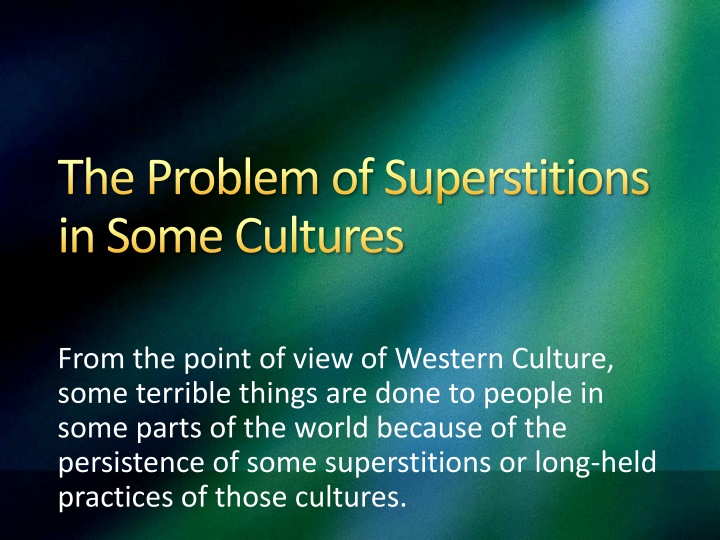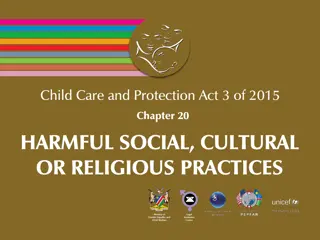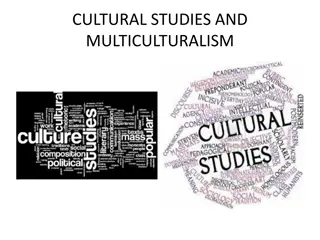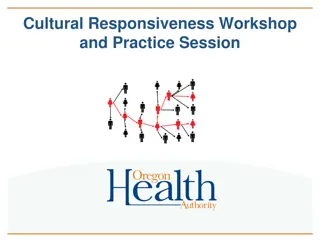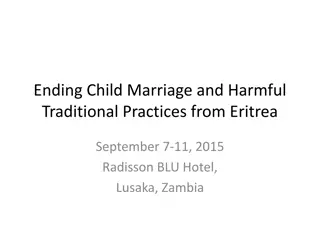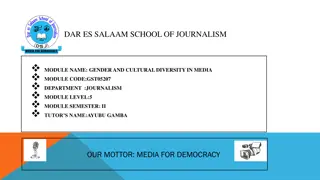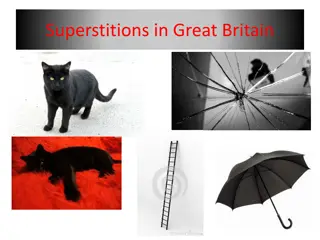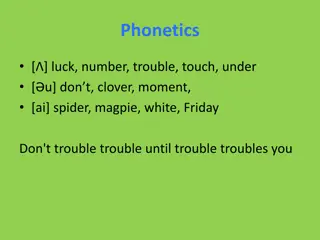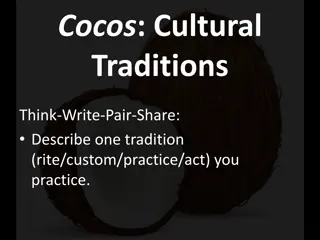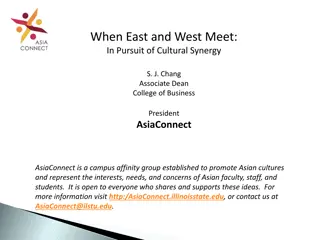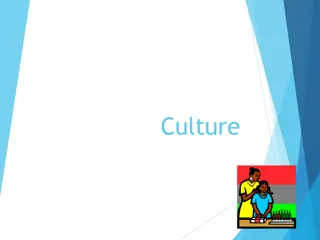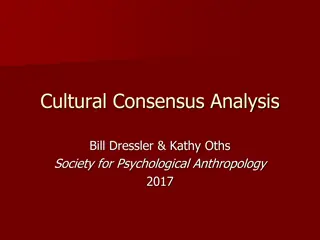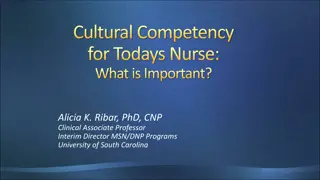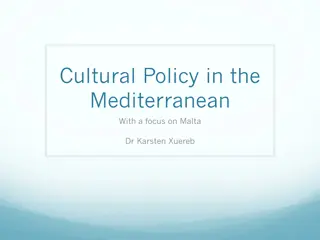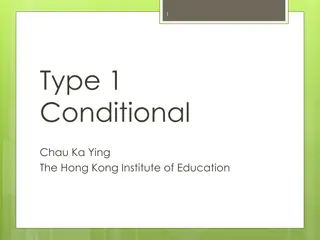Cultural Challenges: Addressing Superstitions and Harmful Practices
Various cultures uphold long-standing superstitions and harmful practices, such as female infanticide and belief in witches, raising ethical dilemmas for Western observers. While understanding cultural contexts is crucial, confronting atrocities like children being accused of witchcraft necessitates respectful intervention strategies to promote positive change without disrespecting local cultures.
Download Presentation

Please find below an Image/Link to download the presentation.
The content on the website is provided AS IS for your information and personal use only. It may not be sold, licensed, or shared on other websites without obtaining consent from the author.If you encounter any issues during the download, it is possible that the publisher has removed the file from their server.
You are allowed to download the files provided on this website for personal or commercial use, subject to the condition that they are used lawfully. All files are the property of their respective owners.
The content on the website is provided AS IS for your information and personal use only. It may not be sold, licensed, or shared on other websites without obtaining consent from the author.
E N D
Presentation Transcript
The Problem of Superstitions in Some Cultures From the point of view of Western Culture, some terrible things are done to people in some parts of the world because of the persistence of some superstitions or long-held practices of those cultures.
Dilemma Do Westerners have any right to judge the beliefs and practices of other cultures? When faced with what Westerners see as horrible practices, what can/should they do? Can Westerners introduce and promote change without disrespecting the local culture? If they can, how?
Some serious problems (from the point of view of Western Culture). Female circumcision genital mutilation Female infanticide Superstitious practices that harm others Denying females their inalienable rights Male puberty rites that involve genital mutilation
Female Infanticide in India and China Killing baby girls, or allowing them to starve to death, is something most of us cannot imagine. But it occurs even today. As shocking and disturbing as this behavior is, however, we must look at in within its cultural context. According to Scheper-Hughes (1987), neglect or killing of children may reflect a survival strategy that the family adopts. Parents might decide to invest more heavily in their best bets and neglect the rest. In some cultures, the best bets are often male (Scheper-Hughes, 1987). Families in these cultures may decide to kill their female children either outright, or passively, through abandonment or starvation to increase the likelihood that their families might survive (Miller, 1987).
2-Year-Old Left To Die Thousands of children are being accused of being witches and we ve both seen torture of children, dead children and frightened children. These are the words of Danish aid worker Anja Ringgren Loven, who rescued this abandoned, starving two- year-old Nigerian boy. Sick with worms and malnutrition, the boy, now named Hope, had been wandering the streets for eight months. Hope was discovered on January 31st, and has been receiving medical attention since; thanks to Ms. Loven, he is well on the way to recovery.
This boy was abandoned because his parents thought he was a witch
He had been wandering the streets for 8 months
Danish aid worker Anja found him on January 31st and named him Hope
Hope was suffering from malnutrition and worms
Thanks to Anja, he began to receive medical attention
And slowly, he began to get better
Hopes condition is stable now
Today, he has had powers to sit up and smiling at us. He s a strong little boy
This is what makes life so beautiful and valuable and therefore I will let the pictures speak for themselves Often stories like this make us feel good and we go away with a smile on our faces rarely do we get a follow-up story to let us know that indeed the Happily-Ever-After ending did endure. What about these points concerning 2 years of malnutrition? Did the brain develop as fully as it could have? Will there be learning disabilities? What emotional problems may he have to confront?
Viewing this story makes us feel good, but . . . Will the Western lady care for him until he grows up? Will some Nigerian family overlook that he was considered to be a witch by his family and adopt him? Will anything be put in place to provide for a positive future for Hope? Will Hope end up back on the street starving when he is 5 years old? What about all the other similar children who weren t rescued by an aid worker from Europe?
Election time good luck KAMPALA (Thomson Reuters Foundation) - Six cases of the mutilation and murder of children as "good luck" sacrifices were reported during the recent Ugandan elections, a children's charity said. "Child sacrifice cases are common during election time as some people believe blood sacrifices will bring wealth and power," said Shelin Kasozi of Kyampisi Childcare Ministries (KCM), a charity that cares for survivors of attempted child sacrifice.
Moses Binoga, coordinator of the anti- trafficking task force at the interior ministry, said children had been reported missing in the election period. But he could not confirm KCM's reports and said investigations were ongoing. He said seven child and six adult sacrifice cases were reported in the country in 2015, compared to nine child and four adult sacrifice cases reported in 2014. Binoga said the mutilated bodies of children and adults had been found, some with hearts or livers ripped out. In two cases reported last year the victims' heads were missing, he said.
Malawi Malawi like any other society in the world, is governed by a culture whose beliefs, customs, and a host of social practices have a powerful influence on community life. Some cultural practices impact negatively on the enjoyment of human rights in general and the rights of women in particular. Other similar and different cultural practices infringe on the rights of individuals and groups of people, for example the practice of fisi (a male adult having sexual intercourse with newly initiated girls)
So what? These are very serious questions about very serious problems. There are no easy one-size-fits-all answers either. As we deal with other countries, we can t just pretend that problems such as these do not exist. They do exist and won t just fade away if they are ignored. The problem is determining how to respond to initiate change without condemnation.
